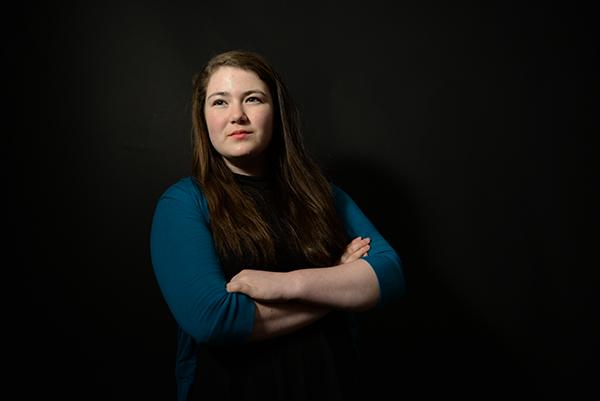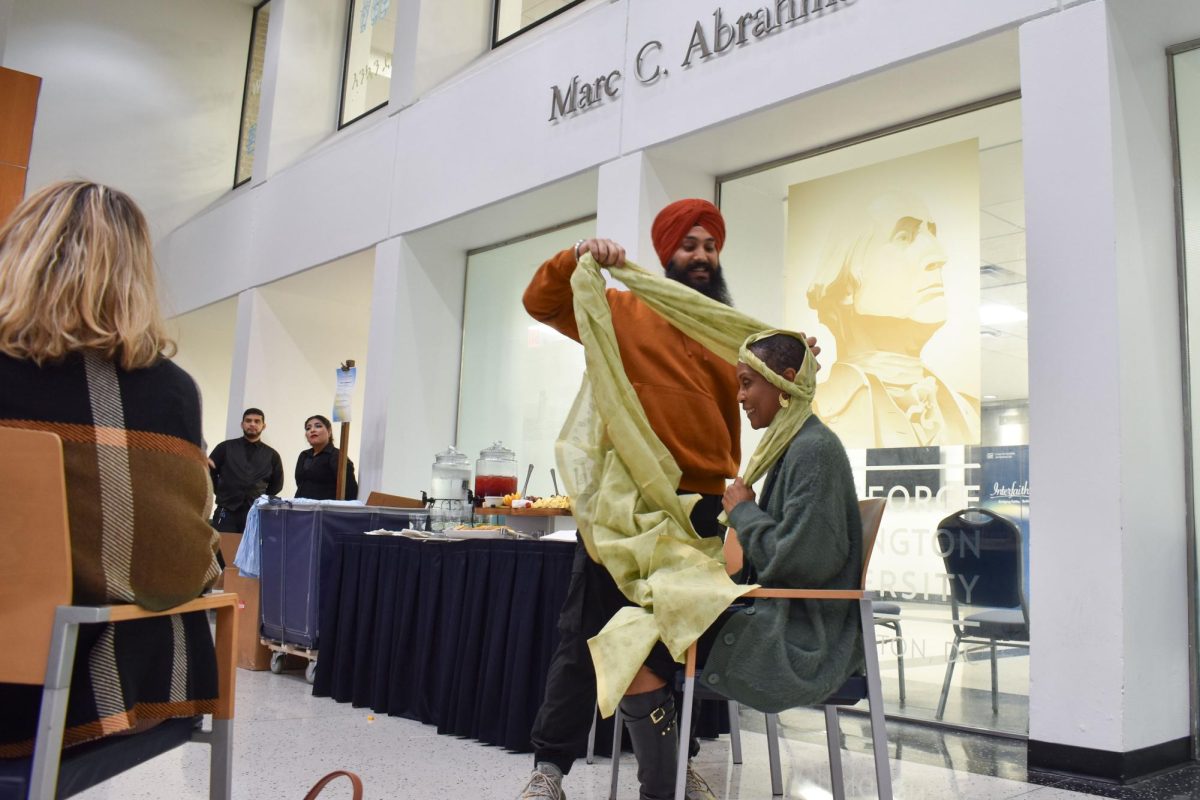
Campus activists want to raise awareness of sexual assault by using documents that reach virtually every student at GW: class syllabi.
The coalition of students plans to work with administrators, sexual assault survivors, experts and campus groups to decide which information to include. The team hopes to pass a resolution in the Student Association about the measure within the year.
One of the leading advocates, Ariella Neckritz, a member of Students Against Sexual Assault and the Feminist Student Union, said it’s crucial that students know how to contact the staff members who respond to instances of sexual assault and harassment, known as GW’s Title IX coordinators.
“People don’t know the resources that a Title IX coordinator can offer,” Neckritz said. “So having that information in a really public place would hopefully encourage more people to reach out.”
The students said all GW syllabi should include information about UCC resources related to sexual assault, an explanation of the anti-discrimination law Title IX and contact information for the soon-to-be-hired Deputy Title IX coordinator.
Title IX coordinators work to ban perpetrators from contacting victims, change a student’s housing situation or class schedule, connect victims with police, outline medical options and forward requests for the University to take disciplinary action.
All syllabi now include the University’s religious holiday policy, the Code of Academic Integrity and contact information for Disability Support Services, University spokeswoman Maralee Csellar said. She said the University would not comment on a proposal to include sexual assault resources until students present it.
Angela Esquivel, an area coordinator in the Center for Student Engagement who is working with the students on their proposal, said the measure would bring more faculty members into a campus-wide conversation about sexual violence.
“It’s a lot more meaningful when something like this comes from the students,” said Esquivel, who is also a sexual assault survivor and prevention advocate. “I think this is a really great way for faculty to feel like they’re doing something to help, even if it’s as simple as adding another paragraph to their syllabus.”
Reports of forcible sex offenses, including rape, are on the rise on campus, with the number of reports more than doubling since 2008. Administrators have said that the increase is likely due to growing awareness about how to report the crimes.
Neckritz is working alongside Victoria Goncalves and Kyle Hanna, who both ran for seats on the Student Association Senate. The students said they were inspired by Miami and Clemson universities, which both include information regarding sexual assault on the bottom of syllabi, and they have started collaborating with professors.
“The hope is that, rather than someone going through a maze of emails and phone calls, that they can more directly connect with resources and start some type of a healing process to help them through whatever incident is occurring,” said Neckritz, whose mother is a sexual assault survivor.
The deputy Title IX coordinator position has sat vacant since University administrator Tara Pereira, who also served as GW’s sexual harassment response coordinator, stepped down in December. Vice Provost for Diversity and Inclusion Terri Harris Reed has taken over the duties until a new staff member is hired later this semester.







